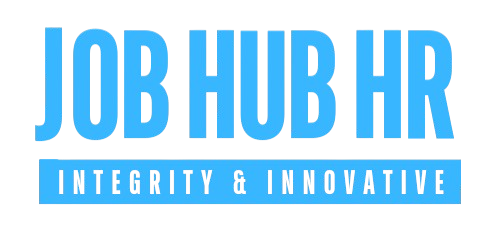5 Key Skills Every HR Professional Should Have for Successful Careers
Introduction: Welcome to the Job Hub HR blog! In today’s post, we will discuss the five essential skills that every HR professional should possess to thrive in their careers. As the HR industry continues to evolve and the job market becomes increasingly competitive, these skills will play a crucial role in distinguishing top HR professionals from the rest. So, whether you are just starting your HR journey or looking to enhance your skill set, let’s dive into the key skills that can set you up for success.
-
Effective Communication: Communication is at the heart of HR roles, and having excellent communication skills is paramount. HR professionals must be able to clearly convey information, actively listen to employees’ concerns, and mediate conflicts. By mastering verbal and written communication, HR professionals can build trust, foster positive relationships, and facilitate effective collaboration within the organization.
-
Problem-solving and Decision-making: The HR field often presents complex challenges that require quick thinking and sound judgment. HR professionals need to be skilled problem solvers who can analyze situations, identify root causes, and develop innovative solutions. Moreover, they should be able to make informed decisions while considering various perspectives, legal implications, and business objectives.
-
Leadership and Influencing: Strong leadership skills are crucial for HR professionals, as they play a significant role in guiding and motivating teams. HR professionals should inspire trust, lead by example, and effectively manage change within the organization. Additionally, the ability to influence stakeholders, including senior management and employees, is vital for implementing HR initiatives and driving positive organizational culture.
-
Adaptability and Flexibility: The HR landscape is constantly evolving, driven by technological advancements, changing workforce dynamics, and shifting business needs. HR professionals must be adaptable and embrace change to stay ahead in the industry. This includes being open to new ideas, continuously upskilling, and proactively seeking ways to improve HR practices to meet the demands of the evolving job market.
-
Data-driven Decision-making: In today’s data-driven world, HR professionals need to leverage data and analytics to make informed decisions. By utilizing HR metrics and analytics tools, they can gain insights into employee engagement, performance, and retention. Data-driven decision-making enables HR professionals to identify trends, implement targeted strategies, and measure the impact of HR initiatives on organizational success.
Conclusion: In conclusion, mastering these five key skills will empower HR professionals to navigate the challenges of the HR industry and excel in their careers. Effective communication, problem-solving abilities, leadership skills, adaptability, and data-driven decision-making are vital attributes that employers seek in HR professionals today. By continuously honing these skills, you can position yourself as a valuable asset in the job market and contribute to the growth and success of your organization.
Remember, these skills can be developed through learning, practice, and hands-on experience. Stay tuned to the Job Hub HR blog for more insightful content on HR trends, career advice, and industry best practices.
If you’re looking for HR professionals with these key skills, visit our website at www.jobhubhr.com and connect with our expert team.
1: Importance of Effective Communication in HR
- Highlight the role of effective communication in HR, such as building relationships, resolving conflicts, and ensuring clear information flow.
- Discuss specific communication skills HR professionals should develop, such as active listening, empathy, and clarity in written and verbal communication.
- Provide examples and tips on how HR professionals can improve their communication skills and create a positive communication culture in the workplace.
2: Problem-solving and Decision-making in HR
- Emphasize the importance of problem-solving and decision-making skills in HR roles.
- Explain how HR professionals encounter various challenges, such as employee conflicts, policy development, and strategic planning.
- Discuss effective problem-solving techniques, decision-making frameworks, and critical thinking skills that HR professionals can employ.
- Provide real-life scenarios or case studies to illustrate the application of problem-solving and decision-making skills in HR.
3: Leadership and Influencing Skills in HR
- Highlight the significance of leadership skills for HR professionals in driving organizational success.
- Discuss key leadership qualities that HR professionals should possess, such as integrity, empathy, and the ability to inspire and motivate others.
- Explore strategies for influencing stakeholders, gaining buy-in for HR initiatives, and building strong partnerships with key decision-makers.
- Provide examples of successful HR leaders and how they have made a positive impact on their organizations through effective leadership and influencing.
4: Adaptability and Flexibility in HR
- Discuss the dynamic nature of the HR industry and the need for HR professionals to be adaptable and flexible.
- Highlight the importance of embracing change, learning new technologies and methodologies, and staying up-to-date with industry trends.
- Provide practical tips for HR professionals to enhance their adaptability and flexibility, such as continuous learning, networking, and being proactive in anticipating organizational needs.
5: Leveraging Data for Decision-making in HR
- Explain the growing significance of data-driven decision-making in HR.
- Discuss the role of HR analytics, metrics, and data interpretation in driving strategic HR initiatives.
- Provide examples of how HR professionals can use data to identify trends, predict future needs, and measure the impact of HR practices on organizational outcomes.
- Discuss the importance of data privacy, ethics, and compliance in HR analytics.
Conclusion: Summarize the key points discussed in the blog, reiterating the importance of these five skills for HR professionals. Encourage readers to develop and enhance these skills to excel in their careers. Provide a call-to-action for readers to visit your website and connect with your HR recruitment agency for further assistance.

